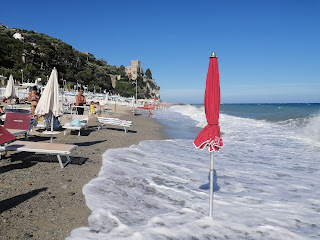Sustainable tourism: what privates can do
After having discussed the role of international organizations, let’
s see what private companies and individuals can do to make tourism a more sustainable experience ;-)
Private companies and individuals are called upon to play a leading role, in the end the tourism industry is largely in their hands. Approximately 70% of companies operating in the tourism sector have taken measures to embed sustainability standards and 41% are interested in including sustainability goals in their plan. This materializes in a number of measures that include resource efficiency, pollution reduction, staff training, cost reduction of operations, improvement of service delivery, and optimization of the way to do business.
As for the various service sectors to which sustainability criteria must be applied, all sectors are involved: overnight stays, transport, and all services provided by operators and hosting communities.
With regard to housing, which mainly affects carbon dioxin emissions, the priority is to reduce emissions, to spread and consolidate the eco-certification system where already developed, to periodically monitor results, and to invest in the training of the personnel who operates in the sector. The reference point is the UN Global Compact.
Transport, as has been pointed out, is a sore point, as the main contributor to global warming in the tourism sector. It therefore requires an all-round investment in safety and health, on the reduction of pollutants, on the implementation of new technologies, on measurement, on waste disposal and discharges.
As far as tour operators are concerned, it is up to them to contribute to a strategy to commit their customers to ethical options. Among the others I recall travelling with in sight how to contribute to the reduction of poverty, to health concern mitigations, to the fight of unfair consumption, of sex tourism and of all the plagues which side-effected the tourism industry for ages. Aware tourists can make choices that are oriented towards a careful selection of service and goods suppliers, keeping in mind energy saving policies, climate change mitigation.
The conversion to this type of tourism requires initial investments for some of the stakeholders involved. These investments can be financed by is public-private cooperation. It should be recalled that there are countries that allocate specific international aid funds aimed at those who want to embrace the cause of sustainable tourism and require investments in infrastructure, in training, in new information and / or advertising campaigns.
There are also financing instruments linked to the green economy: GreenBonds, Impact Investing, Private Finance for Energy Efficiency, Blendedfinance, incentives for eco-certifications, Enterprise Challenge Funds .
And don't dismiss too easily crowdfunding! There might be someone ready to help you!



Commenti
Posta un commento